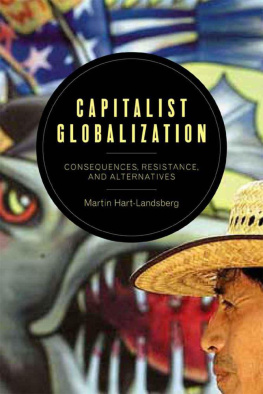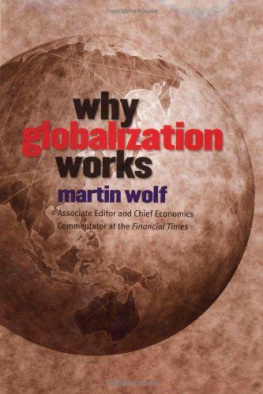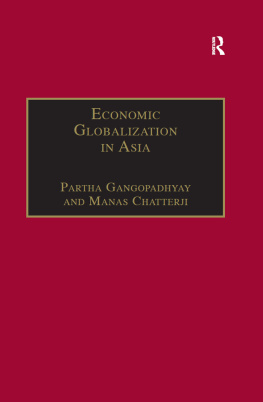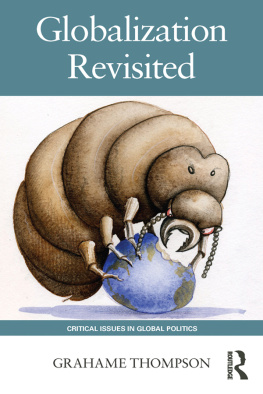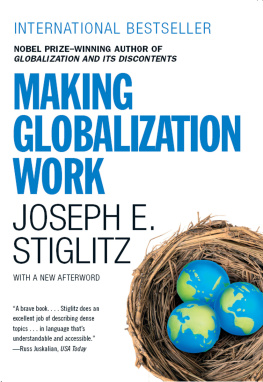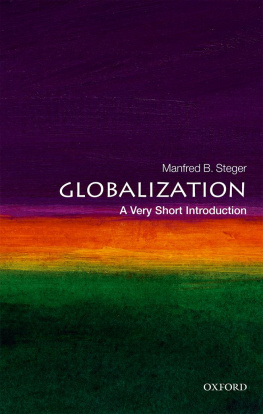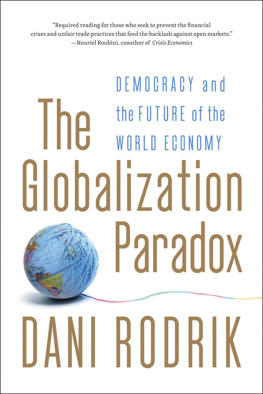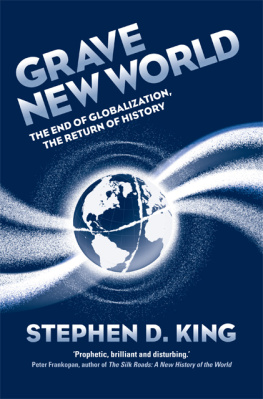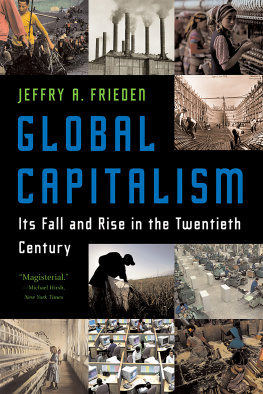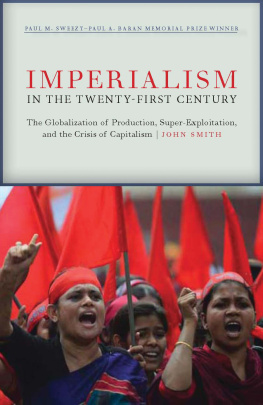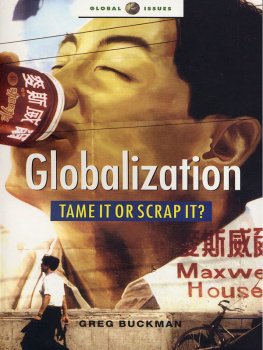Praise for CAPITALIST GLOBALIZATION
This indispensable guide to the integration of East Asia into the multinational corporations networks of integrated production clearly shows how the ruling classes of China and South Korea have taken the initiative in sponsoring their countrys integration into an overall process of capitalist globalization which has not only been US-led but also dependent on American mass consumption. Its exposure of the costs to the working classes in each country make this book essential reading for all those looking beyond the unfortunately very limited alternatives addressed here to neoliberal free trade in postwar Europe and contemporary Latin America.
LEO PANITCH, editor, Socialist Register; co-author (with Sam Gindin), The Making of Global Capitalism
Building upon his excellent in-depth studies of capitalist development in South Korea, Japan and China, Martin Hart-Landsberg takes his analysis to the next level by explaining the profound significance of the restructuring of the international organization of production with the creation of cross-border production networks and global (surplus) value chains. By focusing upon how the drive for profits has led transnational corporations to divide production into multiple components in different locations, Hart-Landsberg convincingly demonstrates that a nation-state framework is a distorting lens through which to analyze capitalist globalization. He shows, too, that reliance upon national accounting data is not only a barrier to a correct analysis of the world of international capitalit also makes changing that world difficult because it supports the appearance that workers of other nations are the enemy rather than the transnational corporations that divide and weaken all workers. Hart-Landsbergs stress upon the sphere of production is essential because it gives him particular insight into economic theory, neoliberalism and state policies designed to remove all existing barriers to transnational capital and as well to consider potential alternatives such as those being explored in Latin America.
MICHAEL A. LEBOWITZ, professor emeritus, Simon Fraser University; author, The Contradictions of Real Socialism
What exactly is globalization? Why does it matter for working people and how does it relate to neoliberalism and capitalism? Why are Chinese workers not the rivals of American workers but their potential allies? Why do workers all over the world suffer from unemployment, declining real wages, disappearing benefits and many other hardships? How can capitalist globalization be resisted and how can development be reoriented towards the common good? These are the questions Martin Hart-Landsberg brilliantly discusses and convincingly answers.
MINQI LI, University of Utah; author, The Rise of China and the Demise of the Capitalist World Economy
Capitalist Globalization
Consequences, Resistance, and Alternatives
byMARTIN HART-LANDSBERG

Copyright 2013 by Martin Hart-Landsberg
All Rights Reserved
Library of Congress Cataloging-in-Publication Data available from the publisher
978-1-58367-352-2 pbk
978-1-58367-353-9 cloth
Monthly Review Press
146 West 29th Street, Suite 6W
New York, New York 10001
www.monthlyreview.org
5 4 3 2 1
Contents
Acknowledgments
I am pleased to publish this book with Monthly Review Press. MR Press has long served as an important outlet for timely and insightful analyses of capitalist globalization and efforts to create alternatives to it. In particular I want to thank Michael Yates, editorial director of the Press, for his suggestions which helped sharpen my arguments, and Erin Clermont for her copyediting.
I also want to thank Monthly Review and Critical Asian Studies for giving me permission to include previously published articles in this book.
To sum up, what is free trade, what is free trade under the present condition of society? It is freedom of capital. When you have overthrown the few national barriers which still restrict the progress of capital, you will merely have given it complete freedom of action.
KARL MARX, On the Question of Free Trade, Speech to the Democratic Association of Brussels, January 9, 1848
The question of Free Trade or Protection moves entirely within the bounds of the present system of capitalist production, and has, therefore, no direct interest for us socialists who want to do away with that system.
Indirectly, however, it interests us inasmuch as we must desire as the present system of production to develop and expand as freely and as quickly as possible: because along with it will develop also those economic phenomena which are its necessary consequences, and which must destroy the whole system: misery of the great mass of the people, in consequence of overproduction. This overproduction, engendering either periodical gluts and revulsions, accompanied by panic, or else a chronic stagnation of trade; division of society into a small class of large capitalists, and a large one of practically hereditary wage-slaves, proletarians, who, while their numbers increase constantly, are at the same time constantly being superseded by new labor-saving machinery; in short, society brought to a deadlock, out of which there is no escaping but by a complete remodeling of the economic structure which forms its basis.
FREDERICK ENGELS, On the Question of Free Trade, Preface to the 1888 English edition
Introduction
Times are tough in the United States. Unemployment is high; those with jobs suffer real wage declines and ever greater demands to work harder and longer. Household debt is up and wealth is down. Homelessness is growing. Health care is becoming a luxury. In sum, people are hurting, scared, and increasingly angry. Unfortunately, tough times do not automatically produce a clear understanding of the causes of these problems and the appropriate responses to them.
I wrote this book for three reasons. First, I wanted to show how and why the capitalist drive for profit has shaped a globalization process that is largely responsible for both our current problems and the dire future we face if state policies and corporate patterns of economic activity continue unchanged.
Of course, people talk about globalization all the time, and even economists admit that it has its costs. Still, the phenomenon is generally presented as both irreversible and overwhelmingly beneficial. In fact, most economists believe that the best way to respond to the costs of globalization is to embrace the process and improve our ability to compete more effectively against our national rivals. This requires, above all, greater freedom for market forces, which translates into further liberalization, deregulation, and privatization of economic activity. In other words, we have no one to blame but ourselves if we suffer from globalization.
This notion of globalization as a natural web of expanding ties between nations in which the invisible hand of competition can enhance efficiency and majority well-being holds powerful sway over peoples thinking. It underpins the belief of many U.S. workers that our economic problems are primarily due to the policies of other governments, like that of China, who do not play fair: they restrict market forces and thus gain for their own citizens an undeserved advantage over U.S. corporations and workers. This belief, in turn, encourages working people to demand that the U.S. government compel these other governments to make their respective national economies operate more like our own. In short, this notion promotes the view that there is nothing fundamentally wrong with capitalismwe just need to defend it against problematic state interventions.
Next page
